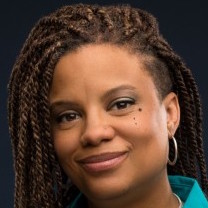 A study led by researchers from the University of Pennsylvania, has found that although Black and Hispanic teens observe a great deal of references to violent and risky behavior on social media. However, only a small percentage of this population actually places posts online referring to such behaviors. But large-scale exposure to posts about risky behaviors may cause Black and Hispanic teenagers to become normalized to such behavior.
A study led by researchers from the University of Pennsylvania, has found that although Black and Hispanic teens observe a great deal of references to violent and risky behavior on social media. However, only a small percentage of this population actually places posts online referring to such behaviors. But large-scale exposure to posts about risky behaviors may cause Black and Hispanic teenagers to become normalized to such behavior.
For the study, the researchers focused on two behaviors with well-established links between exposure and an increased likelihood of engagement: substance abuse and unprotected sex. They also examined exposure to violence. The team surveyed a large group of Black and Hispanic teens and asked them to answer yes or no to prompts about whether they had seen posts on subjects like nudity or sexually suggestive posts and videos about violence on Facebook and Instagram.
The results found that as many as 84 percent reported exposure to risk-related content on social media, but fewer than one-fifth said they personally had posted such content.
“In other words, they’re witnessing a lot of material that might be negative,” said lead author, Dr. Robin Stevens. “But if 80 percent of youth don’t share this type of information — salacious posts about sex or problematic drug or alcohol use — if they’re not sharing it but seeing it, does it change their perceptions of what is normative? I think it does. I think it’s making them feel like more people are sexually risky, that more are taking and selling drugs, that where they live is unsafe.”
For future research, Dr. Stevens wants to work toward challenging the myths about what these younger age groups believe is normal. She also hopes to improve the social media feedback loop.
“Most of the critiques of these platforms are around bullying and fake news and propaganda,” Dr. Stevens says. “There’s little conversation about how this might harm children in vulnerable populations. Generally, the experiences of Black and Hispanic youth online are not part of this conversation, so how are we going to empower these youth to navigate the risks they face in their digital neighborhoods?”
Dr. Stevens is an assistant professor of nursing and director of the Health Equity & Media Lab at the University of Pennsylvania. She holds a bachelor’s degree from Harvard University, a master of public health degree from the University of Michigan, and a Ph.D. from the University of Pennsylvania.
The full study, “#digitalhood: Engagement with Risk Content on Social Media among Black and Hispanic Youth,” was published in the Journal of Urban Health. It may be accessed here.

